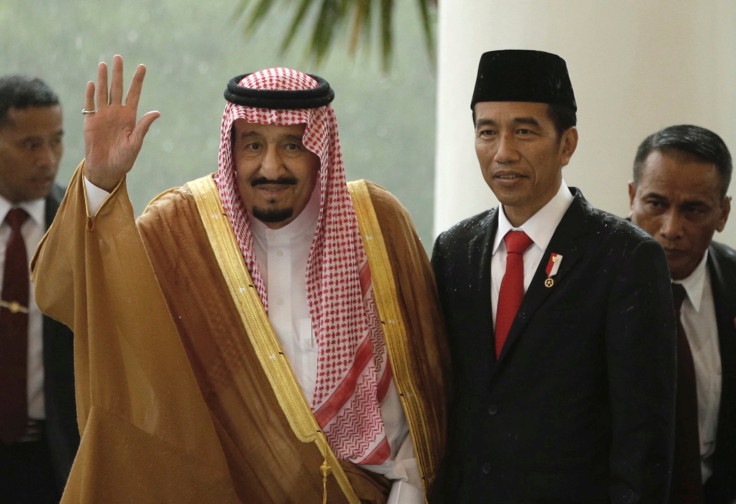Islamic Terrorism: Muslims Should Embrace More Moderate Islam As Counter To Extremist Violence, Says Saudi King

The king of Saudi Arabia called for a moderation of Islam as a counter to terrorism Thursday during a historic trip to Indonesia, home of the world’s largest Muslim population. The conservative reform and purist movement of Wahhabism, often referred to as Salafism, has long been the dominant strain of Islam in Saudi Arabia.
But in a meeting with the leaders of the country’s major Islamic organizations during the first visit of a Saudi monarch to Indonesia in 47 years, King Salman made the case for a modern interpretation of Islam.
“The two countries have come to an understanding that we would prioritize the promotion of Islam as rahmatan lil alamin [blessing for the universe],” Religious Affairs Minister Lukman Hakim Saifudin, who organized the meeting, said afterward, according to the Jakarta Post. "What is needed to maintain the stability of global civilization is the moderation of Islam."
Last year, Indonesia dealt with double the number of alleged terrorists as it had the previous year, with the country’s police chief attributing the rise to the Islamic State (ISIS) group. In January 2016, four people were killed in a series of gun and bomb attacks in Jakarta, for which ISIS militants claimed responsibility.
“The challenge we, especially Muslims, face now is terrorism,” he said. “We should close ranks in combating terrorism, radicalism and strive to bring world peace for the benefit of all of us.”
Saudi Arabia is part of a U.S.-led coalition that has carried out strikes against ISIS targets in Syria. However, the country has repeatedly been accused of funding terrorists, including ISIS.
The country has also invested heavily, to the tune of $10 billion over the past four decades according to the U.S. State Department, in promoting Salafism across the Islamic world.
Much of those investments have been made in Indonesia, home to 209 million Muslims, helping to conservatize a country that was founded upon a relative secular Constitution, with a clear separation between church and state.
“The advent of Salafism in Indonesia is part of Saudi Arabia’s global project to spread its brand of Islam throughout the Muslim world,” Din Wahid, an expert on Indonesian Salafism at Syarif Hidayatullah State Islamic University (UIN) in Jakarta, told The Atlantic.
Indonesia has recently seen a push toward conservative Islam, including a proposal to make all sex outside of marriage illegal and the prosecution of Jakarta’s Christian governor over allegations he insulted Islam.
© Copyright IBTimes 2024. All rights reserved.











